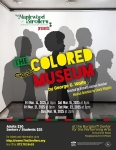What to write in sympathy card when deceased had dementia
If you treasure your memory of the many charming conversations the two of you shared, then that is what you should write. The final three years were a small portion of the life he led and should not define him.
I usually write a simple card, with a fairly warm & public message re happier memories.
And I include, on a separate notepaper, a private message for close family telling them of the special moments that will always remain bright when X is remembered: their love of music, etc. I believe it’s important to share with the family that you could still see their special person and their personality underneath the blandness of dementia.
I’ve just written two follow-up cards to grieving family, a little while after the funerals, because new events brought their loved ones to mind.
I think as long as it comes from the heart, the family will treasure whatever you write. I would suggest not overthinking it, writing the thoughts you want to share and feeling confident that your words will be well-received. It sounds like you have the opportunity to write something quite personal. They will appreciate that.
EBennett - you've got this. What you wrote in your original post is the basis of an extraordinary sympathy note. Talk about the more distant past and your treasured conversations, but talk also about the recent past when music alone was how you enjoyed time together. All of your fond memories will be treasured by the bereaved. Agree with others, the more specific a memory you can share, the better. But seriously, being willing to put met to paper and share a memory is 90% of the job - I am sure what you write will be deeply appreciated.
Thank you all. I appreciate your suggestions and support.
I especially like Joanne's "follow up" idea.
Have a good evening.
















I'm trying to find a way to phrase this concept. I want the widow to know how much I treasured the many charming conversations I had with her husband about music and their children. He loved both dearly.
However, for the three years leading up to his death he was not lucid and became non-verbal. When I visited he would smile while we listened to music.
Do I simply use the past tense, since she knows better than anyone that he hasn't had any recent conversations? Or write something about when he was "lucid"?
I want to acknowledge the man that he was for most of his life, not just the last few years.
Suggestions would be greatly appreciated.